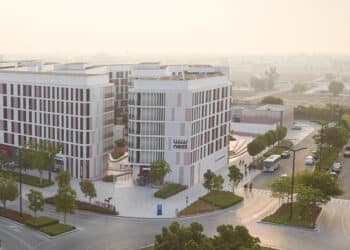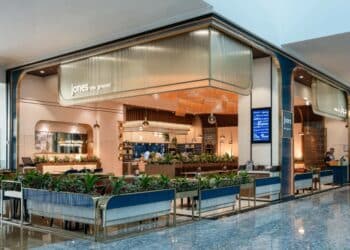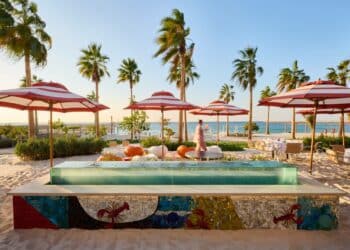Saad Audeh, founding member and managing director of the Audeh Group and chairman of Campbell Gray Hotels, weighs in on the outlook of hotel construction in the MENA region and tells us why mixed-use developments and serviced residences are on the up.

In the past, travellers resorted to fully serviced apartments in the case of extended stays of more than a week or for larger groups; but times have changed and in the past few years, serviced hotel apartments have popped up in all the major cities across the world.
The luxury end of the market in particular, has indicated an increase in demand for serviced apartments; especially those serviced by a hotel. These apartments, usually located in the same building or beside the hotel property, are serviced by the hotel enjoying all the, amenities, luxuries and services available to a hotel guest. These amenities can include spas, fitness centres and F&B outlets. In the case of mixed-use properties, residents can also take advantage of the retail spaces, and sometimes even office space within the development, making it more attractive and creating demand.
This is the reason why many investors and buyers are now seeking hotel residences for investment and demand has been rising in the Middle East in the past few years. This is particularly the case when looking at branded residences that are associated with a renowned hotel group, as it offers a level of confidence and assurance when it comes to quality and resale value. It can also offer innovative architecture, designer interiors and outstanding quality which is a bonus for buyers and investors. Those looking into branded residences generally identify with a certain lifestyle and taste closely associated with that brand and can then replicate the ethos within their own living space.
From my point of view as a hotelier and realtor, I think serviced hotel apartments are definitely the way forward. Recent studies conducted by Colliers International show that luxury hotel chains are now expanding their portfolios and diversifying into boutique hotels, luxury resorts and designer branded residences to meet the changes in attitude within the market. Hotel residences have seen stronger resilience through tough times when compared to hotels.
Trends show that a construction boom is shaping up for the Middle East and North Africa (MENA) region in 2018. The MENA, is the fastest growing region globally for the construction sector and is set to outpace the global growth, expanding by 5.8% to hit $225bn, according to BMI Research. The MENA will be, both in the short and long-term, expanding by an annualised average of 6.5% over the next five years to hit $330bn. Positive demographics, gradually rising oil prices, and ambitious economic diversification agendas throughout the region all play a part in this. This will have a positive impact on the property market making the Middle East attractive for investors.
Markets in the Middle East are progressively growing, due to the increased tourism initiatives by governments, so demand for room nights will increase. Markets like UAE and Saudi Arabia have been growing rapidly over the years. Saudi Arabia is expected to be a hot spot in the region with many new opportunities opening in the tourism sector.
The Kingdom’s diversification plans, new visa programs and large-scale projects are expected to contribute to the growth in tourism, for both business and leisure tourism. Recent data revealed in November 2017 by hotel industry research firm, STR, showed that demand for room nights in Dubai alone went up year-over-year by 2.7%, reaching an all-time high.
Jordan is another market that has become increasingly attractive for investors in the Middle East. The Jordanian government has made a remarkable effort with public spending, which, according to the International Monetary Fund (IMF), has placed Jordan amongst the most dynamic countries in the Middle East. GDP in Jordan, according to the IMF, is expected to grow by 4% by 2019.
This has positively benefited the real estate market in the country, especially in the capital Amman. Jordan has been an oasis of political stability in the Middle East and its geographical location is an important asset. With a unique combination of attributes that create an attractive environment for business and investment, Jordan is gaining popularity as an international business and investment hub.


































































